Both addiction and mental health disorders can be complex to treat — especially because they commonly occur together. Dual diagnosis treatment is a specialized form of treatment designed to support individuals that have co-occurring disorders.
When a substance abuse disorder and a mental health issue occur together, both issues must be addressed concurrently for treatment to be effective. The symptoms associated with each condition can exacerbate the other. Therefore, if one issue is not addressed, treatment for the other is rarely successful.
Dual diagnosis treatment provides a proper diagnosis for both conditions and a comprehensive treatment plan to support the individual at all levels. This robust form of treatment arms the individual with coping skills for both illnesses and provides them with a greater chance of achieving sobriety and mental health stability. Take a look at the top benefits of dual diagnosis treatment below.
The Benefits of Dual Diagnosis Treatment
1. Greater Understanding of an Individual’s Overall Condition
When an individual enters a dual-diagnosis program, he or she undergoes a comprehensive evaluation to obtain a proper diagnosis for both conditions. For example, an individual may be struggling with alcoholism and depression or opioid addiction and anxiety.
The dual-diagnosis evaluation will examine all risk factors and symptoms to develop a deeper understanding of the person’s mental health as a whole. The clinician will examine how each condition affects the other, the symptoms involved and the person’s history with both illnesses.
2. Individualized Approach to Treatment
With a greater understanding of the individual’s conditions, an individualized treatment plan is easier to build. The treatment team will create a core plan of different levels of therapy to address the symptoms of both conditions at the same time. For example, if an individual has post-traumatic stress disorder (PTSD) and a substance-use disorder, that individual may need psychotherapy (talk therapy) for PTSD, as well as therapy for addiction.
3. More Motivation to Achieve Recovery
When an individual has a better understanding of his or her condition, it can help to motivate recovery. It is not uncommon for individuals who are addicted to fail during prior treatment attempts because co-occurring conditions were not addressed.
With dual diagnosis, a clear view of the issues and the road ahead can lead to a more achievable road of recovery.
4. Better Understanding of Triggers and Risk Factors
The risk factors associated with addiction and other mental health disorders often overlap. For example, there can be both hereditary and environmental factors that enhance a person’s risk for both alcoholism and depression or anxiety.
With the knowledge that a person is struggling with two conditions, risk factors can be easier to evaluate. This knowledge can also help provide the individual with knowledge about potential triggers for both conditions and how to cope in the future.
5. More Robust Support System for the Individual
In a sense, dual diagnosis helps the individual see that he or she is not alone in the struggle. Oftentimes, people who have a substance abuse issue don’t recognize how common it is for other mental health factors to be involved.
Dual diagnosis normalizes the idea that co-occurring disorders are not uncommon. Therefore, people who undergo treatment often develop a greater sense that many others understand and can also build a better support system with people who walk a similar path and can relate.
6. Improvements in Physical Health
Both substance abuse and mental health disorders can affect physical health. For example, addiction can lead to inadequate nutritional intake, while a mental health condition like depression could lead to chronic fatigue. These two serious issues can affect one another and have detrimental health outcomes.
During dual diagnosis treatment, both conditions that are affecting the person’s health will be addressed. Therefore, there is often a natural improvement in the individual’s physical health.
7. Higher Chance of Treatment Success
The final and often most touted benefit of dual diagnosis treatment is the fact that there is a greater chance of treatment success. Further, relapse may be easier to prevent because the individual has a deeper appreciation for how each of his or her diagnoses can have an effect on the other and what triggers to avoid.
Finding the Best Dual Diagnosis Treatment
For individuals that struggle with addiction and a secondary mental health disorder, dual-diagnosis treatment can be the most effective path to recovery and a higher quality of life. If you or a loved one is in need of dual diagnosis treatment in Tucson or Albuquerque, Vanguard Behavioral Health is here to help. Reach out today to discuss our treatment programs.








